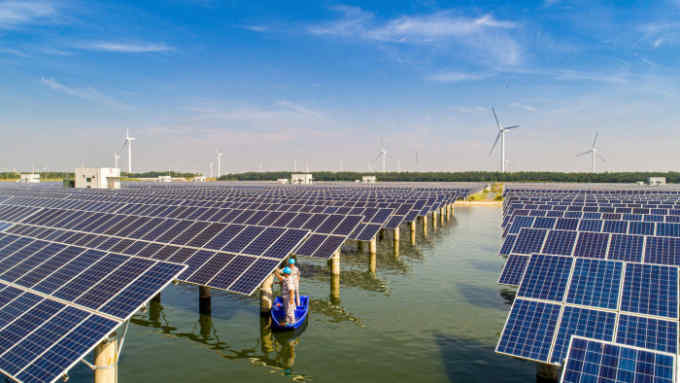Greater disclosure to open doors for China green investors

Simply sign up to the ESG investing myFT Digest -- delivered directly to your inbox.
When East Capital invests in a Chinese company, the asset manager runs through a checklist of 60 questions designed to gauge the target’s environmental, social and governance (ESG) credentials.
But for Karine Hirn, co-founder and chief sustainability officer of the emerging markets-focused group, the ability to compare companies is still limited by a familiar issue in China: data.
“A lot of it is not standardised, everyone’s got their own ways of calculating stuff,” she says. “What we do today, it’s more a qualitative assessment. We don’t have a question on the quantity of emissions.”
That may change this year if, as investors like Ms Hirn hope, major Chinese stock exchanges introduce requirements for listed companies to disclose more details about their ESG practices, allowing for quantifiable approaches to assessing corporate responsibility in the world’s biggest carbon emitter.
The measures, expected later this year for Shenzhen and Shanghai listings, would follow on from updated ESG requirements in Hong Kong that come into effect in July. They would also form part of a wider global shift, aligning China with evolving international norms that emphasise sustainability alongside financial returns.
But while developed markets’ heightened focus on sustainable investing is often driven by investors — in turn under pressure from their clients — it is a different story in China, where the government plays a more powerful role in the functioning and purpose of markets.
“Progress in China is quite driven by regulators with more push than pull,” says Ms Hirn. “You still have very few foreign investors.”
In 2006, the Shenzhen stock exchange introduced guidelines requiring a degree of ESG disclosure, though analysts say there were few specifics on what should be disclosed. Two years later, the Shanghai exchange added guidelines about disclosing environmental information. This year’s new measures are expected to involve the publication of more specific performance metrics for individual companies.
The introduction of such guidelines is having an impact. A report last year from the UN Environment Programme Finance Initiative found that 666 companies on the Shenzhen stock exchange — roughly a third — disclosed environmental information in their 2018 semi-annual report, up 40 per cent on the previous year.
Levels of disclosure vary by sector: for the CSI 300 index, which tracks the largest stocks on the Shanghai and Shenzhen exchanges, the manufacturing sector published the most corporate social responsibility reports — making up 43 per cent of the total — while the finance sector contributed 19 per cent.
But data is still dogged by a lack of clarity and comparability, investors say. And while shareholder pressure in the US and Europe has pushed companies towards greater levels of environmental disclosure, in China the practice is often seen as a box-ticking exercise.
“Because a lot of this has been driven by government, it’s seen by some corporates as a regulatory exercise and not a genuine strategic exercise,” says Gabriel Wilson-Otto, head of stewardship at BNP Paribas Asset Management in Asia-Pacific.
The UN report points out that ESG disclosure in China is driven by factors aside from stock exchange rules, such as environmental protection laws.
According to Mervyn Tang, global head of ESG research at Fitch Ratings, disclosure is part of the “policy apparatus” in China, making stock exchanges a plausible tool for official policy.
“If you don’t have a standardised greenhouse gas emissions indicator that can be looked at across companies, it’s much harder to set . . . specific targets,” he says.
He adds that disclosure requirements could also be part of the effort to attract more international investment in the country’s capital markets.
In a review of ESG disclosure in 2018, published in December, bourse operator Hong Kong Exchanges and Clearing pointed to “growing calls globally for companies to consider ESG-related issues and risks in determining their business practices and direction”.
Mr Tang says reporting and disclosure have catered more for the needs of international investors. “What we see is ESG becoming an increasing requirement for international investors in terms of their processes,” he adds. “For a lot of asset owners that means you basically need [an] ESG framework.”
BNP’s Mr Wilson-Otto agrees, saying that many asset managers in China are being told by potential clients: “If you’re doing ESG, we’re interested in talking to you.”
But while developments in ESG disclosure may encourage more international money to flow into China, the country’s approach ultimately remains more influenced by government than the pressures of still-nascent markets.
“When I speak to Chinese entities, often in the discussion there’ll be a comment saying [the] environment is very important to President Xi and the people of China,” says Mr Wilson-Otto. “I think a lot of shareholders, domestic [and] foreign, are increasingly having these discussions.”

Comments